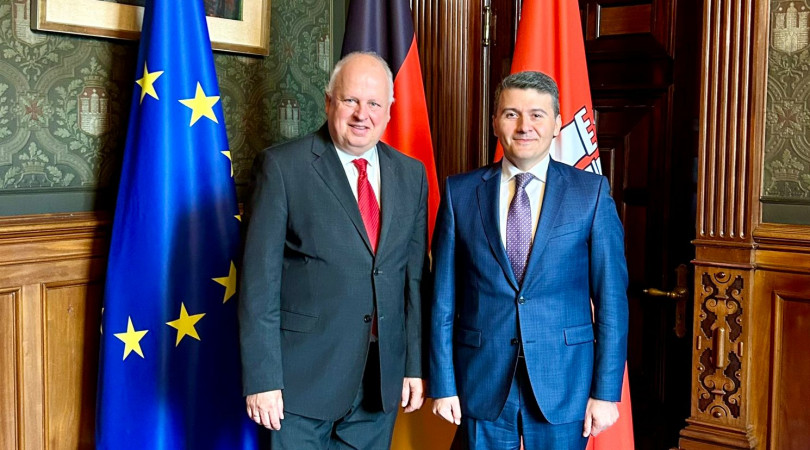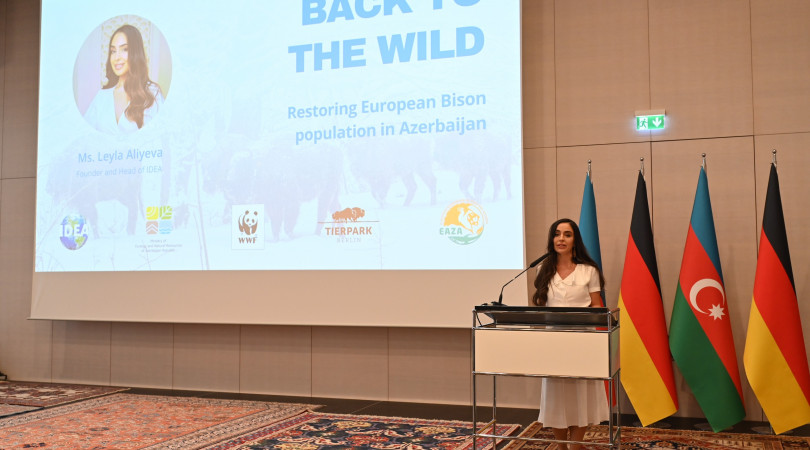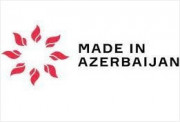Of the Commissioner for Human Rights (Ombudsman) of the Republic of Azerbaijan on the 24th anniversary of Khojaly Genocide
The crime committed in Khojaly city at the night from 25th to 26th February of 1992, by the Armenian armed forces together with the 366th moto-artillery regiment of the former Soviet army in Khankendi was one of the unprecedented events due to its cruelty.
Khojaly genocide resulted with severe violation of international legal norms and principles as well as of human rights and freedoms and as an integral part of the aggressive policy against Azerbaijan, became another evidence of long-lasting ethnic cleansing and genocide policy of Armenian extremists and their supporters against the Azerbaijani people. During Khojaly genocide, 613 people, whose names were known, including 106 women, 63 children and 70 old people were killed; over 1000 civilians became disabled as a result of severe injuries; 1275 people were taken hostages, the fate of 150 out of them still remains unknown.
8 families were totally exterminated; 25 children lost both, whereas 130 children lost one parent; captives and hostages were subjected to merciless torture. Thus, human rights of those people, especially the fundamental right to life were grossly violated.
This massive killing of human beings, committed by the Armenian invaders, unambiguously, is an act of genocide due to its unimaginable cruelty and tortures. Hence, under international law, genocide is considered to be one of the gravest crimes and the elements of this crime are determined in a number of legal documents. The UN General Assembly Resolution 96 (I) dated 11 December 1946, states that genocide, violating the right of people to life, damages human dignity, and deprives the mankind of the material and spiritual values created by human beings, is contrary to the spirit and aims of the United Nations and universal values and the civilized community condemns it.
The international legal definition of the crime of genocide was determined in the United Nations Convention on the Prevention and Punishment of the Crime of Genocide adopted by the Resolution 260 (III) of the UN General Assembly of 9 December 1948.
The commitment of criminal acts, planned in advance and aimed at mass annihilation of people on the ground of their nationality during the Khojaly massacre constitutes this crime as genocide.
During the aggression against Azerbaijan, all elements of the crime of genocide stated in the mentioned Convention were applied. However, unfortunately, though the commitment of such terrible acts of genocide against the Azerbaijani civilians, all these facts, including Khojaly genocide have been not yet properly assessed, the planners, organizers and the committers of this crimes were not prosecuted and punished, no action has been taken yet. 2 Nagorno-Karabakh and adjacent seven regions are an integral part of Azerbaijan. This is re-affirmed once again by the international law, as well as by the UN Security Council Resolutions 822, 853, 874, 884 from 1993, UNGA Resolution on “Situation on the occupied territories of Azerbaijan” dated on March 14, 2008, Resolution 1416 from 2005 and Recommendation 1669 from 2009 of the Parliamentary Assembly of the Council of Europe confirming the occupation of Azerbaijani territories by the Armenian military forces, and governing of Nagorno-Karabakh by separatists.
As a consequence, over one million of the Azerbaijani people became refugees and internally displaced persons (IDPs), whose main rights and freedoms were severely violated. Armenia, being accepted as a member to the Council of Europe, has undertaken several international obligations according to the Opinion No. 221 of the Parliamentary Assembly, such as obligations to pursue efforts to settle the conflict in NagornoKarabakh by only peaceful means; according to the principles of international law to settle international and local disputes also by peaceful means by resolutely rejecting any threatened use of force against its neighbors. However, those obligations have not been fulfilled; the Armenian side demonstrating unconstructive position regularly violates the ceasefire regime and creates obstacles to the peace in the region. The European Parliament Resolution of 23 October, 2013 on Nagorno-Karabakh also re-affirms the support of just position of our State by the international community and the fact of occupation.
This document denotes once again the importance of the settlement of the Nagorno-Karabakh conflict in conformity with the UN Security Council relevant Resolutions of 1993 that requires immediate, unconditional and total withdrawal of all occupant forces out of the territories of Azerbaijan. Regrettably, no relevant actions have been taken yet and the historical territories of Azerbaijan still remain under the occupation. Our National Leader Heydar Aliyev unveiled the essence of Khojaly genocide and in February, 1994, the Parliament of the Republic of Azerbaijan gave legal and political recognition to this crime. The President of the Republic of Azerbaijan, Ilham Aliyev underlines resolutely the necessity of this conflict resolution only in the frame of territorial integrity of the country as well as emphasizes the necessity of withdrawal of occupant forces from the Azerbaijani territories.
Drawing the attention of international community to the realities of Azerbaijan, including Khojaly tragedy is one of our important duties. Comprehensive information about terror and genocide acts against our people, as well as about Khojaly genocide was given in a number of international conferences and events; and relevant statements were sent to international organizations and ombudsman institutions of different countries. International campaign “Justice for Khojaly” initiated by Leyla Aliyeva, the VicePresident of the Heydar Aliyev Foundation, is one of the purposeful measures taken for dissemination in the world of the information about the Khojaly genocide and 3 recognition of this tragedy as an act of genocide committed against the people of Azerbaijan.
The Action Plan of Events on the occasion of the 24th anniversary of Khojaly Genocide was approved by the relevant Decree of the Head of the Presidential Administration of the Republic of Azerbaijan and measures in this direction are being taken. Within last years, these are certain revivals in actions taken towards the promotion of our just demands; the bloody crime committed in Khojaly is getting recognized in compliance with the norms of international law.
To the point, the Parliaments of Canada, Mexico, Columbia, Peru, Pakistan, Bosnia and Herzegovina, Romania, the Czech Republic, Sudan, Jordan and Honduras already recognized the crime in Khojaly as genocide from the perspective of the international legal norms. A while ago, the National Council of Slovenia passed a decision on ArmenianAzerbaijan Nagorno-Karabakh conflict. The document calls the Slovenian government to support the relevant UN Security Council resolutions within the frame of the efforts for peaceful resolution of the conflict.
The document also recognizes the genocide committed by Armenian armed forces in Khojaly as a crime against humanity. In addition, legislative bodies of the US States, namely, the State of California, Massachusetts, Texas, New-Jersey, Maine, New Mexico, Arkansas, Georgia, Oklahoma, Tennessee, Pennsylvania, Connecticut, Florida, Mississippi, West Virginia, Indiana, Arizona, Utah and Nebraska had also passed the related Resolutions demanding to bring the offenders of Khojaly genocide to the criminal responsibility.
The Organization of Islamic Conference (OIC) was the first international organization that recognized Armenia as an aggressor and the Khojaly tragedy as genocide. So, the aim of the Campaign “Justice for Khojaly” organized by the Youth Forum of OIC, which carried out in over 40 countries of the world, is also to aware the international community about this bloody event. It makes indignant and regretful that legal assessment has not yet been given to Khojaly genocide at the international level.
This crime shall be investigated by the special international commission and recognized as an act of genocide by the corresponding international organizations, and sanctions shall be imposed on the perpetrators of this crime in compliance with the norms and principles of international law and without double standards. I urge the wellknown international organizations to condemn this act of genocide and to increase efforts to just punishment of the offenders of this crime as soon as possible. We do once again declare that Armenia should fulfill the decisions of international legal documents on this conflict; shall restore the territorial integrity of Azerbaijan; shall 4 liberate the Azerbaijani captives and hostages; shall restore the violated rights of refugees and IDPs and they shall be returned to their homes; also the criminals who killed innocent people and committed genocide should be prosecuted and punished before the tribunal very soon.

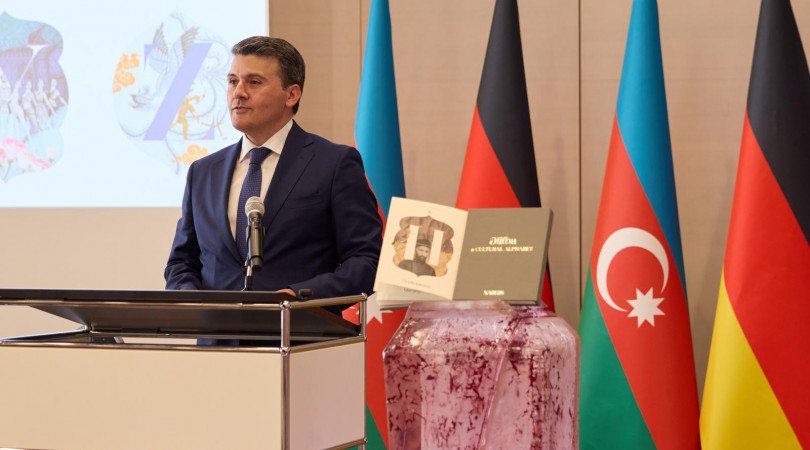
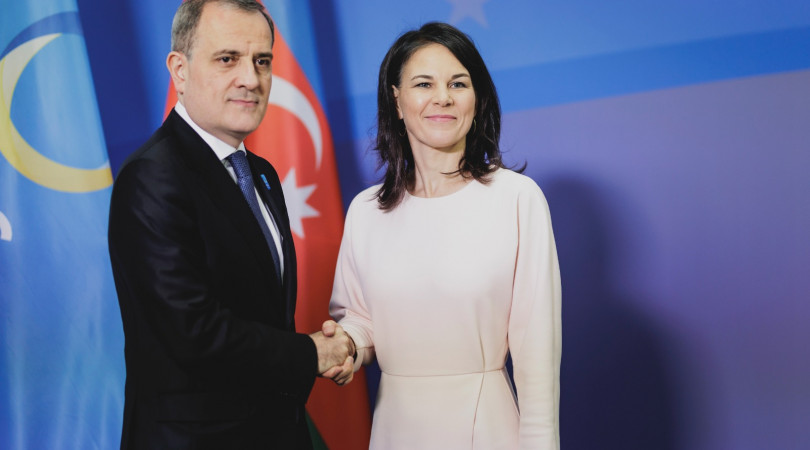
.jpeg)
